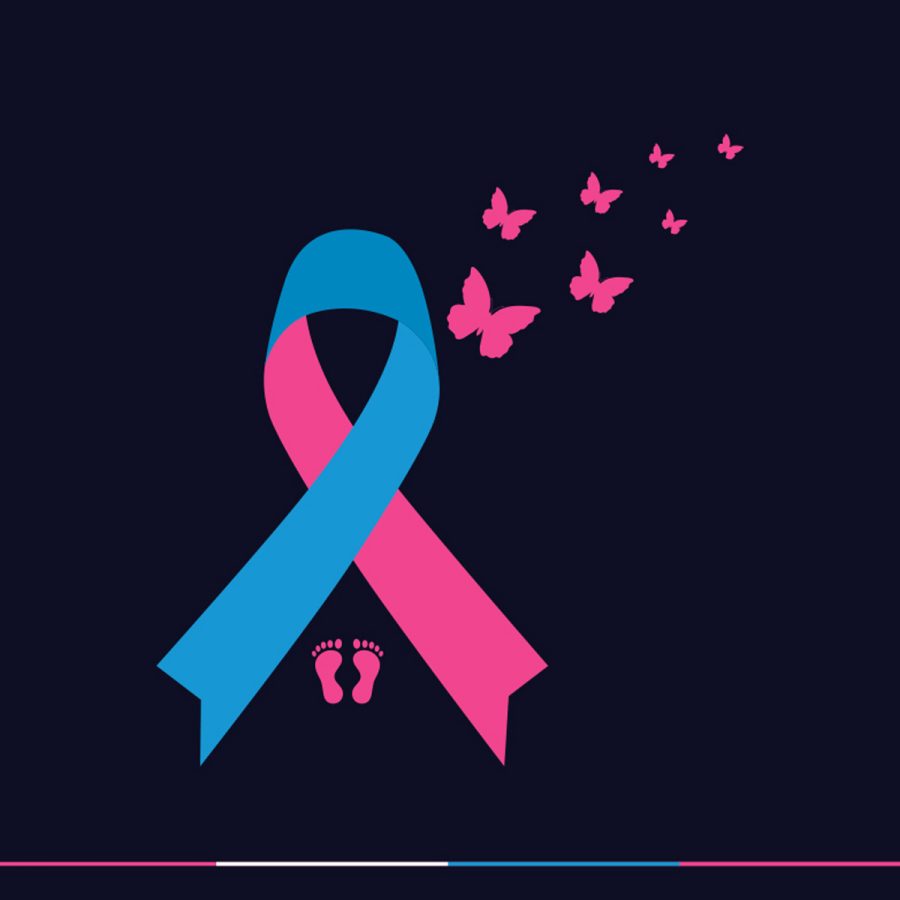Pregnancy and Infant Awareness Month: a celebration of life and support in October
The month-long support for mothers who have unexpectedly lost their child
November 3, 2021
Women across the nation unite to support mothers who have lost their babies due to unforeseen complications. The month of October is dedicated to spreading awareness for pregnancy and infant mortality.
On October 15, 1988, President Ronald Regan declared October as Pregnancy and Infant Awareness Month because of the occurrence of infant mortality.
“When parents lose their child, there isn’t a word to describe them,” Regan said, “This month recognizes the loss so many parents experience across the United States and around the world. It is also meant to inform and provide resources for parents who have lost children due to miscarriage, ectopic pregnancy, molar pregnancy, stillbirths, birth defects, SIDS and other causes.”
Teachers and staff members are RV have, in recent years, been more open in discussing their own experiences with pregnancy loss. English teacher Aubrey Hunt briefly shared her pregnancy experience by stating, “…[my husband and I] went to the doctor, saw the heartbeat, we thought everything was great.” Then, Hunt shared that the following day of the ultrasound visit, she suffered a miscarriage.
According to March of Dimes, “about 10 to 15 in 100 pregnancies (10 to 15 percent) end in miscarriage. Most miscarriages happen in the first trimester before [week 12] of pregnancy. Miscarriages in the second trimester (between 13 and 19 weeks) happens in one to five in 100 (one to five percent) pregnancies.”
As a result of the creation of the awareness month, many women who have endured the loss of their child found emotional support through groups or personal relationships. These days, especially in the age of social media, many mothers know they are not alone.
“I realized a lot of women have gone through [miscarriages],” stated History teacher Cheryl Alspach, “I was able to connect with other women and I actually have a community of friends that… I met through this experience through like a support group…and we’re still friends now, eleven years later.”
Additionally, Pregnancy and Infant Awareness month helps women understand that their emotions are reasonable, even if they doubt them.
“[Women] feel ashamed or sad…they feel silly [for] mourning,” said Hunt. “But I think that it’s important for people to know that…all feelings are valid and that a loss of a life, no matter how far you are in a pregnancy. You have to cope with it and there’s no shame in reaching out.”
Besides confiding in other people, ceasing negative thoughts, such as what did I do wrong? will benefit the mother. Hunt stated that taking the blame off of yourself is really important for one’s mental health.
The awareness can guide society away from making insensitive statements to mothers who have suffered from unfortunate problems from their pregnancy.
“People say things that are not helpful like ‘you know, maybe it’s just God’s plan’ or like ‘there must’ve been a reason for it’ or ‘it was just the wrong time,’ and none of those things are helpful [for] the people who are going through [miscarriages],” stated Alspach.
Instead, according to many mothers, people should display sincerity when a mother announces the loss of their child. Statements similar to “I’m here to listen” and “remember, you are not alone” spread throughout the blog post of Join Cake.
Both women had full-term pregnancies following their miscarriages, giving birth to healthy “rainbow babies” a few years following their miscarriages. Alspach has three children and Hunt has two.
“Even though…there might be difference of opinion as to whether that child was a child yet…to a mother that baby is a child, that was a life, and that was hope, and that was like a whole vision for your future that got ripped away from you,” said Alspach.







